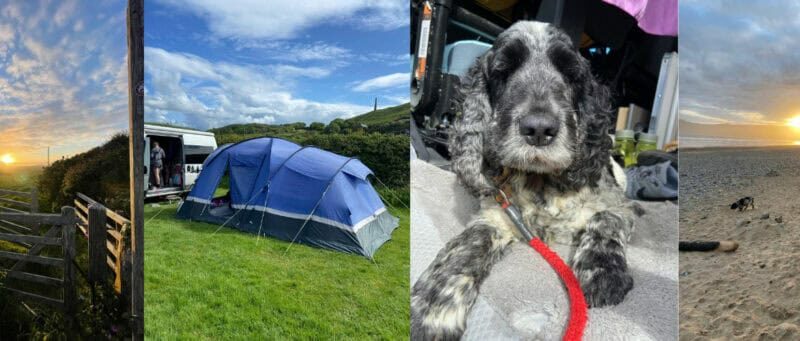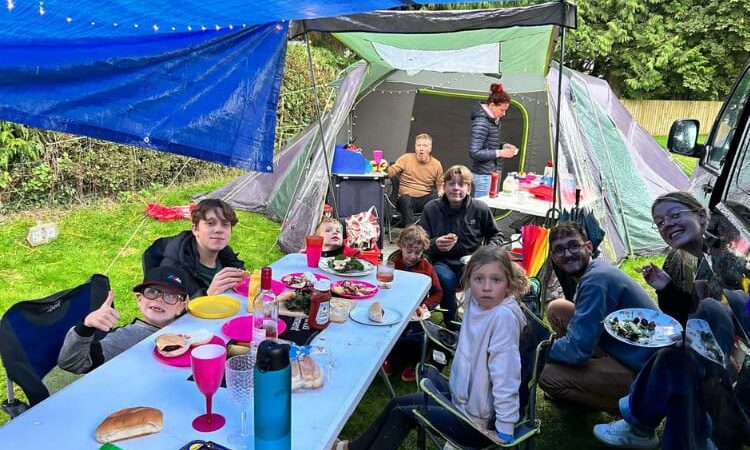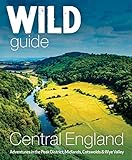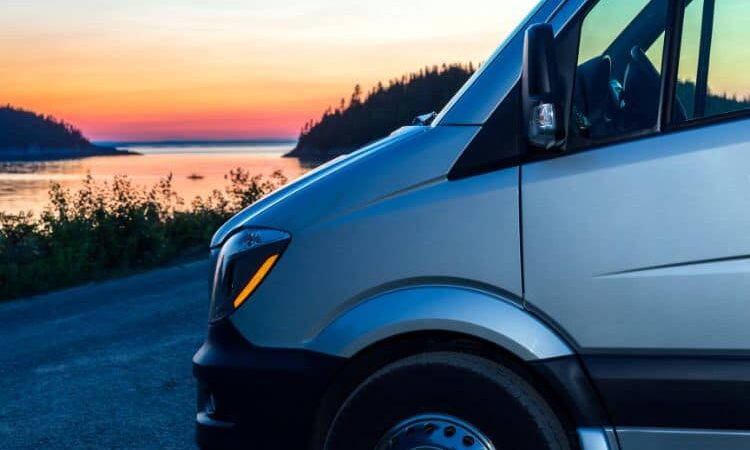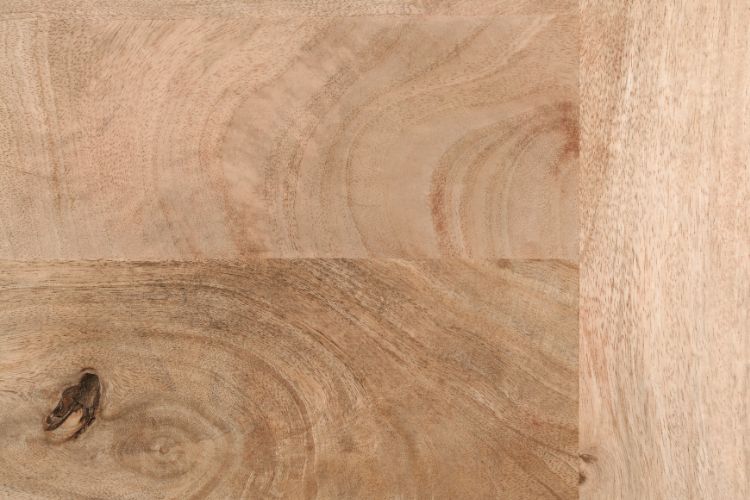How To Lock A Tent
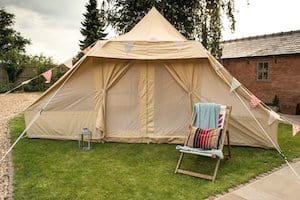
When you look at a tent, you can clearly see that these structures are not the most secure things in the world. While camping on an organised campsite is usually pretty safe, you still want to feel confident that nobody is going to take your belongings while you’re off exploring the local area.
What’s more, if you are camping in a remote spot then you never know who might come along and try to take advantage of you. But putting a lock on the tent door is hardly a deterrent; after all, a determined thief may simply take a blade and slash through the material, easily gaining entry.
So that begs the question of how to lock a tent. While you can buy tent locks, these aren’t the most reliable things in the world. So rather than locking your tent, it pays to be a little more mindful when it comes to taking care of your valuables.
Should I Use A Tent Lock?
A tent lock is one way to provide your tent with an added layer of security and it will certainly keep the zipped door closed. However, as we mentioned earlier, this is hardly the most reliable thing in the world as anyone could just rip the fabric of your tent and then it’s a free for all.
Of course, the presence of a tent lock might put your mind at ease a little more when you have to leave the tent but we have to be realistic. We unfortunately live in a world where crime is far higher than it should be and people will take advantage if they’re given the opportunity.
If you absolutely must use a tent lock then we’d recommend putting it in a less than obvious spot so that it’s not a clear sign that no one is home. There are a lot of opportunistic thieves out there who will spot a tent lock and sneak around the back to gain access to the tent when they know that it’s empty.
Some people choose to use a tent lock through the night to secure the tent when they are asleep. This might be a good idea if you have kids that you don’t want getting out in the middle of the night but you also have to remember that it’ll also be more difficult to get out in an emergency.
Ways To Prevent Crime When Camping
It’s a sad fact of life that we need to do what we can to protect ourselves and our belongings when camping. In an ideal world, we wouldn’t need to but we do so here are some ideas to boost your safety and avoid being the victim of theft while camping. Check out our campervan security article too.
Don’t Draw Attention To Valuables
On the unfortunate chance that someone was to get into your tent, they’re going to want to get in and out as fast as possible. This means that they won’t want to have to rifle around to find valuables. So keeping them hidden is a brilliant deterrent.
If you have to store your valuables in the tent then make sure you use your wits to find the most obscure spots that won’t be immediately obvious. Anything that is left in an obvious place will be a surefire invitation for a thief.
Camp At Campsites
Camping out in rural areas gives you a wonderful opportunity to get up close and personal with nature. However, these spots are usually very quiet and give thieves the chance to grab your valuables without anyone noticing.
If you camp on an organised campsite then there is far less risk of being the victim of theft as people won’t have as many opportunities without getting caught. There is always activity and people wandering around so it makes life a lot more difficult for those who want to spoil it for the rest of us.
You do have to consider, however, that not everyone is going to pick up on criminal activity even if it’s happening right in front of their eyes. This is because most people on the site won’t be familiar with one another. If they see someone going into your tent, how are they to know that they’re doing anything wrong and aren’t permitted access?
There are some campsites that have gates at the entrance which makes it more difficult for unwanted visitors to get onsite. These campsites will only permit access to guests which can make you feel a lot safer.
On the flip side, there are some campsites that we’d avoid like the plague. These sites tend to be rundown, uncared for and lacking in security. If the site is well maintained then this generally tells you that it’s more secure. Of course, it’s always worth checking out online reviews as this will tell you a lot.
Again, remote camping can be tempting and some campgrounds are well out of the way. In this sense, remoteness is on your side as it’s far less likely that there will be random people wandering past. If someone is going to scope out a campsite then they’re much more likely to do it closer to home because even thieves don’t want an unnecessarily long trip.
Keep Valuables In The Car
When you leave the tent to go for a day out, it can often be useful to keep valuable items in your car. This is something that can be locked and vehicles are fitted with alarms so if someone does try their luck, they’ll soon be called out on it.
But most thieves know this and they won’t put themselves in a situation where they’re likely to get caught. Putting items in your car will keep them much safer but you do need to make sure they’re well hidden. It’s no use placing an expensive iPad in clear view on the front seat as all it takes is for someone to smash the window, reach in and be off.
Put things in the glove compartment, the boot or in seat pockets to keep them well out of view. Even covering up items with a coat can be effective as the thief won’t know if there’s anything valuable underneath and often won’t take the risk to find out; they always go for the easiest option.
Keep Hold Of Your Belongings
Where possible, keep your valuables on your person at all times. Most of us carry things like credit cards, phones, cash and jewellery on us and when you’re camping, this is more important than ever.
If there are items you can do without then simply don’t bring them with you. That way, there’s no risk of them being taken.
At night, there is a small risk that some daring thief will break into your tent while you’re sleeping so make sure to have your valuables in your sleeping bag with you.
Secure Valuable Items
There may be times that you have no other choice but to leave a valuable item at the campsite. If this happens then you need to do everything in your power to secure it. One of the best ways to do this is to attach it to something that cannot be moved.
Something like a tree or a sign post is perfect. You can simply chain the item to it (this works well for things like bicycles) and a thief would have to stand there in broad daylight picking the lock if they wanted to take it. Nobody wants to take that risk so your items should be safe.
Just be sure to buy a high quality padlock that cannot easily be cut with bolt cutters. A chain is also very useful in this instance.
Knowing How To Take Care Of Yourself
Unfortunately, there may be times that you find yourself in a situation where you need to confront a thief. I remember as a teenager, we were on holiday in Gran Canaria and I was sitting eating my breakfast in the villa we had rented. I looked up and a random man had the audacity to walk straight through the open front door and into the bedroom opposite.
My dad was standing at the back door chatting to one of the other holidaymakers so I called him and he shot off to confront the man. However, as my dad got there, the guy was just running back out of the front door so my father ended up chasing him. He never caught up with him but later admitted that, if he had, he wouldn’t have been sure he’d have been able to defend himself.
This teaches us a lesson that we need to be able to protect ourselves in a difficult situation. I would never advise standing up to a thief that has a weapon or is clearly physically stronger than you. In this case, hand over your belongings as these can be replaced.
I would never recommend arming yourself with any weapons when camping. For starters, it’s not legal to carry a weapon unless it is for work, religious reasons or it is being transported to a museum. Guns are a whole other story and you must have a certificate to own one but even then, they’re not permitted to be used as weapons even if it is for self defence. You can find out more about this on the police website
Fortunately, most of the UK is very safe and it’s unlikely that you’ll find yourself in a situation where you need to practice self defence. The best thing to do is to make it difficult for thieves to take your things and only ever take camping what you really need.
Conclusion
Campsites in the UK are pretty safe places and are ideal for families. However, your tent isn’t the safest type of accommodation and there may be people out there who will take from you if you don’t protect your things.
It is possible to buy a tent lock but these don’t really do much since someone could just as easily rip the tent fabric to get in. The best thing to do is to keep valuables with you or hide them when you’re not around.

